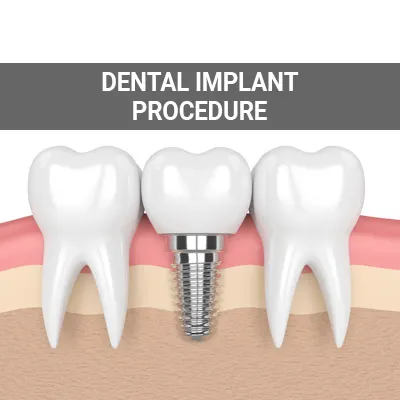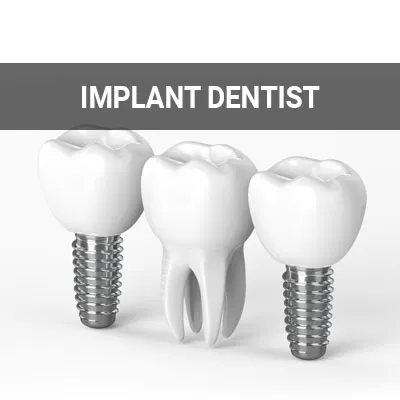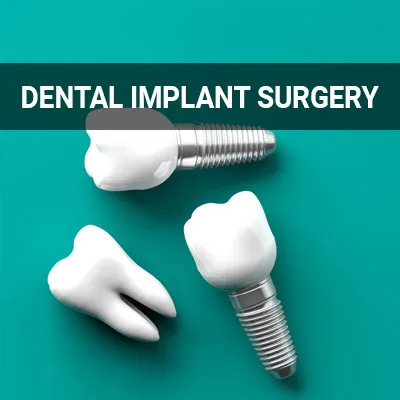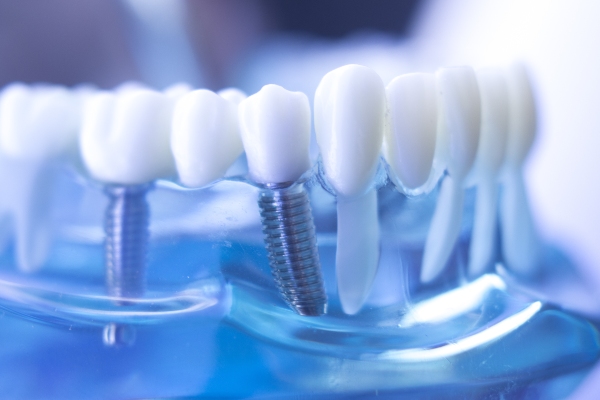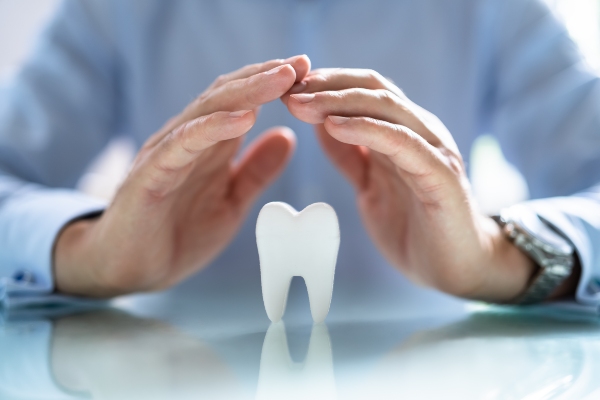Post-Op Care for Dental Implants Franklin, TN
Our guidance can help patients throughout the post-operative care period for dental implants. In most cases, the process is not nearly as complicated as people believe. By following our instructions, we can help patients avoid the risk of infection or irritating the infected area.
Here at our Franklin office, we help our dental implant patients through the recovery process, ensuring they make a full and quick recovery. We can also go over proper oral hygiene to keep dental implants in proper condition. To learn more about dental implants and post-operative care, call us at (615) 295-8290 today and schedule an appointment with New Image Dentistry.
An Overview or Post-Op Care for Dental Implants
The length of recovery time for dental implants will vary per patient. In most cases, it will not take nearly as long as people assume. With good oral hygiene and specific dietary restrictions, patients can count on an efficient and comfortable recovery. Our team can suggest soft foods patients can eat to lessen the chance of irritation in the area surrounding the implant. Patients should ask about oral health techniques to apply to avoid inflaming the site as well.
We can help explain the initial and long-term recovery process, so most patients know what to expect following implant placement. Although every patient has a different experience, there are certain side effects to expect and precautions to take during post-operative care. According to Medical News Today, infection, gum recession, and a loose implant are more common problems that can develop after dental implant surgery. Patients should inform our team of any medications they are taking or chronic conditions that might affect recovery.
“With good oral hygiene and specific dietary restrictions, patients can count on an efficient and comfortable recovery.”
The Recovery Process
The recovery process happens in stages, and many can make a full recovery in as little as four weeks. The patient may need to take several days off from work and physical activity during post-operative care, while the swelling and discomfort are at their worst. Most return to eating normally within two weeks, which is about the same time swelling, bleeding, and overall discomfort should start to go away.
There is little discomfort associated with dental implants, but the side effects may vary slightly for each patient. However, there are certain side effects patients can expect during post-operative care. Several of the more prominent and notable side effects include:
- Pain and swelling: The dentist will provide ways to minimize discomfort, but there will be some pain and gum swelling for the first few weeks of post-op care.
- Minor bleeding: While it is possible to keep bleeding at a tolerable level by avoiding irritation of the implant site, some occasional minor bleeding may occur.
- Difficulty chewing: Dietary restrictions (see below) are necessary for the first few post-op care weeks.
- Restricted movement: Swelling and discomfort often restrict jaw movement during the recovery process.
Most side effects are minor and go away within the first few weeks of post-op care. Talk to your dentist if more severe side effects develop.
“The recovery process happens in stages, and many can make a full recovery in as little as four weeks.”
Post-op Follow-up Appointments
Your dentist should schedule one or more follow-up appointments after the day of surgery. You must attend all of these appointments. The number of appointments and the type of aftercare applied will depend on the treatment plan agreed upon by you and your provider.
Dental implants must be checked on regularly because there are so many elements to monitor. First, the dentist must check to ensure the implant is attaching to the jawbone properly and that there is no inflammation or signs of infection. Also, there is a slightly higher risk of gum disease in those with dental implants, leading to implant failure, among other problems. Your dentist will want to catch it early to prevent it from becoming a more serious issue.
“Dental implants must be checked or regularly because there are so many elements to monitor.”
Check out what others are saying about our dental services on Google: Post-Op Care for Dental Implants in Franklin, TN
How to Make a Quick Recovery and Return to a Regular Routine
If patients are looking to speed up the recovery process, there are some things not to do. Do not drink through a straw as the suction could irritate the wound and slow recovery. Smoking can slow healing by depriving your body of vital oxygen needed for recovery. Other vices to avoid include caffeine and alcohol. Drink water instead because staying hydrated will speed recovery.
Besides practicing good oral hygiene, there are a few things one can do to aid in recovery. Patients can use ice packs to help reduce swelling. By day two and after, saltwater rinses will help keep bacteria away.
“Besides practicing good oral hygiene, there are a few things one can do to aid in recovery.”
Questions Answered on This Page
Q. What questions should a patient ask about the post-op process?
Q. What will post-surgery side effects can patients expect?
Q. How many follow-up appointments will you need post-op?
Q. Is there anything patients can do to recover faster?
People Also Ask
Q. What are the benefits of dental implants?
Q. How long does the implant procedure take?
Q. What happens during the initial consultation?
Q. How can I prepare for my first implant procedure?
Lifestyle Changes
The recovery process typically involves several weeks of dietary restrictions, lifestyle, and oral hygiene changes.
Dietary Restrictions
The dentist provides the patient with specific instructions on foods and drinks to avoid during recovery. Nothing the patient consumes should be extremely hot or cold. Keep in mind that oral infection risk is higher after implant placement, so limiting foods and beverages high in sugar is essential. Foods that are easy to chew can include oatmeal, eggs, soup, and mash potatoes. Drinking water throughout the day is helpful as well.
Lifestyle Changes
It is natural to experience discomfort for the first few weeks of post-op care. Some patients may prefer to take a day or two off work while they recover. Most importantly, avoid activities that may result in a blow to the face (sports, weight lifting, outdoor activities) during the recovery process.
Oral Hygiene Routine
As mentioned, the risk of infection is higher during recovery, so a proper oral hygiene routine is essential. Be certain to brush gently several times a day and use mouthwash regularly, along with any other specific recommendations provided by the dentist. Resources such as WebMD's Oral Care Guide may provide useful information as well.
“Keep in mind that oral infection risk is higher after implant placement, so limiting foods and beverages high in sugar is essential.”
Frequently Asked Questions
Q. Are regular post-op care checkups for dental implants required?
A. Yes. We will most likely recommend a pre-scheduled checkup before the dental implant procedure. This is crucial during post-op care to ensure the dental implant is healing properly. The frequency of the visits depends on various factors, including the number of implants that we place.
Q. Is it safe to return to work during post-operative care?
A. Most patients are encouraged to take several days off from work after implants placement. However, many can return to work within a week. If the side effects reduce and the patient can carry out their daily work routine, it is safe to return.
Q. What should I expect right after placing the dental implants?
A. The initial stages of post-operative care are the most challenging for the patient, and the swelling, discomfort, and bleeding will likely be at their worst. Fortunately, with the assistance of pain-relief and anti-inflammatory medication, the severity of the initial side effects is typically tolerable. In most cases, the side effects usually do not last for more than twenty-four hours before they begin to subside.
Q. How can I help someone else during post-op care for dental implants?
A. It is helpful to know how to help a loved one through post-op care for dental implants. Be sure to ask the dentist about what can be done to help someone else through recovery. Possible ways to help include helping them remember to take prescribed medication, practicing good oral hygiene, and ensuring they have soft foods to eat.
Q. What should my oral hygiene routine be right after surgery?
A. You may carefully brush and floss around the area on the day of surgery, but do not use mouthwash. You can rinse with warm salt water several times a day, starting the day after surgery. Our team will include hygiene recommendations in your aftercare instructions.
Dental Implant Terminology
Call Us Today
We enjoy helping our dental implant patients through every treatment stage, from the initial consultation to post-operative care. Call us at 615-295-8290 today to schedule a visit with us and learn more about the treatment and post-operative care process for dental implants.
Helpful Related Links
- American Dental Association (ADA). Glossary of Dental Clinical Terms. 2023
- American Academy of Cosmetic Dentistry® (AACD). Home Page. 2023
- WebMD. WebMD’s Oral Care Guide. 2023
About our business and website security
- New Image Dentistry was established in 2007.
- We accept the following payment methods: American Express, Cash, Check, Discover, MasterCard, and Visa
- We serve patients from the following counties: Williamson County, Hickman County, Davidson County and Ruthaford County
- We serve patients from the following cities: Franklin, Brentwood, Nashville, Spring Hill, Columbia, Thompson’s Station, Nolensville, Murfreesboro and Smyrna
- Norton Safe Web. View Details
- Trend Micro Site Safety Center. View Details
Back to top of Post-Op Care for Dental Implants



